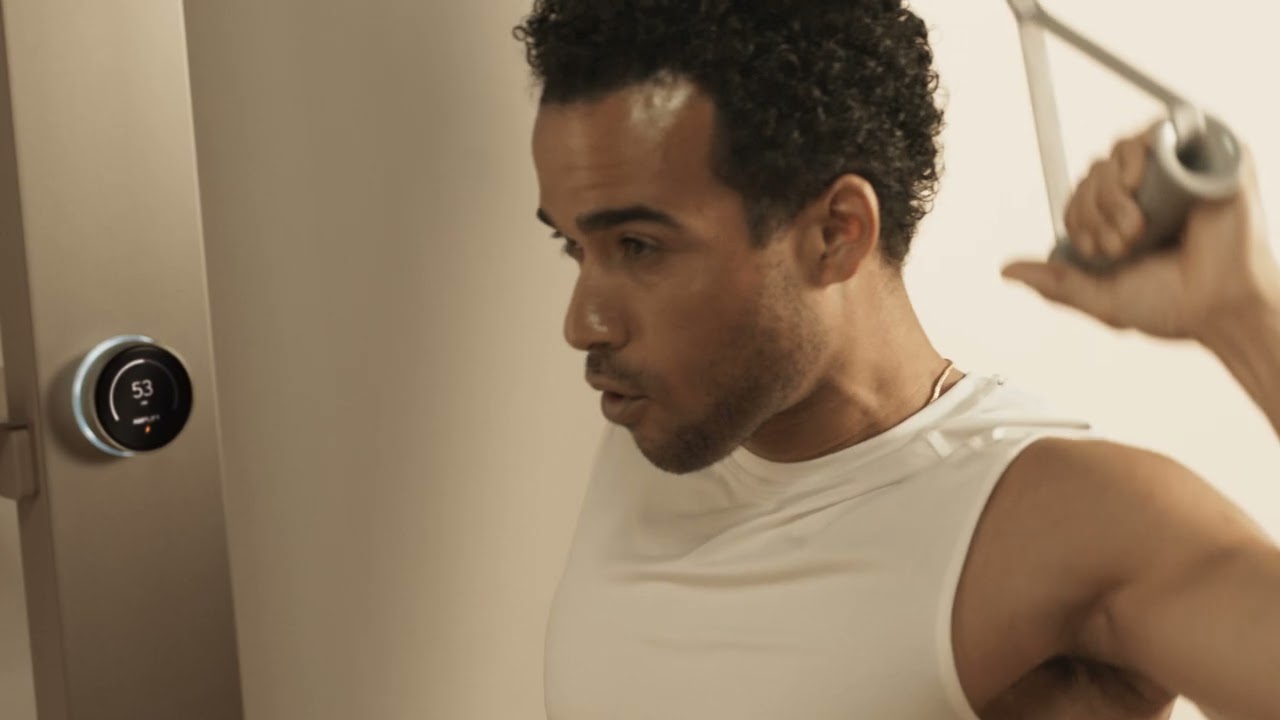This AI-powered strength machine could be Peloton for gym rats, and it looks incredible
- amp fitness, a new AI-powered strength machine, will be on display at CES 2025
- It is supported by influencers such as online strength coach Chris Heria and actor Terry Crews
- amp will officially launch in January 2025
When it comes to fitness, there are all kinds of gadgets designed to optimize our workouts, improve our health, and incorporate technology into our otherwise offline physical pursuits. From the best smartwatches and running watches to the best fitness apps and connected devices like Peloton, to the crazy stuff like continuous glucose monitors, technology has made its way into our exercise and diets.
One area where technology has yet to gain a foothold is strength training. Sure, there have been attempts — Technogym’s AI-powered dumbbells come to mind — but while running and outdoor cycling got Strava, walking got AllTrails and spin classes got Peloton, the barbell hasn’t seen any real tech-based innovation.
That’s because strength training is by its very nature a primary, offline, natural activity, one with little room for improvement beyond having a machine that counts your reps for you with slight inaccuracy, or to plan your next workout. You cannot measure muscle growth with a sensor. There are plenty of apps to help with programming, but in terms of hardware, there’s nothing that can really improve strength training, except maybe a rest timer.
However, this may all be about to change. Demonstrated at this year’s CES 2025 conference and now available for pre-order, Amp takes the old-fashioned gym-based cable machine and gives it a futuristic design and AI smarts. It’s a machine that just might be strength training’s “Peloton moment.”
It’s essentially a sleek-looking, highly adjustable cable machine with a camera and an accompanying app that you mount to the wall in your home. You can electronically choose multiple types of resistance, from a static mode from start to finish to ‘band’, a mode that starts slack and becomes more resistant as you reach the peak of your movement, mimicking the use of resistance bands. You can control the resistance level with a simple dial.

It has challenges and leaderboards to get those gamified Peloton addicts on board, and follow-up workouts and programs produced in collaboration with popular fitness influencers, like YouTube star Chris Heria. A press release states that the device “features an AI system that adapts workouts in real time, so users are always challenged and supported throughout their fitness journey.”
It is endorsed by bodybuilders like Larry Wheels and Brooklyn 99 Actor Terry Crews has also put his (significant) weight behind it.
There’s no denying that it looks good, like a Hydrow (another connected fitness success story) mounted on the wall. It seems incredibly easy to use, and while I was initially skeptical about the benefits an AI-powered machine could provide for strength training, I can definitely see the booster being at least a mild success, in an arena where other post- COVID home workout power technology has failed miserably to generate any excitement. Had it been released in 2019, it probably would have been a resounding triumph.
We can’t wait to put it to the test with some good strength training. amp costs $1,795 (about £1,450 / AU$2,900) in the US – not cheap, but cheaper than a Peloton. It’s available for pre-order now and will initially release in the US in early January.

We cover all the latest CES news of the show as it happens. Stick with us for the big stories on everything from 8K From TVs and foldable displays to new phones, laptops, smart home gadgets and the latest in AI.
And don’t forget that follow us on TikTok for the latest news from the CES show floor!
